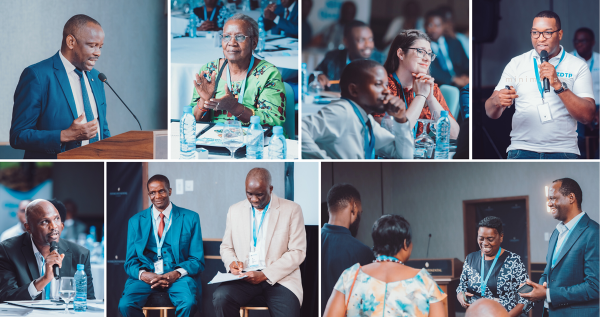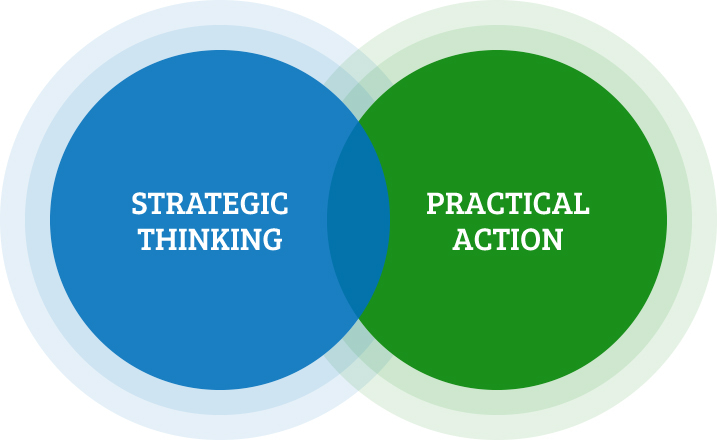News
Seven years of targeted support for Zambian dairy farmers celebrated with emotional event

There were tears, cheers and hugs as the Zambia Dairy Transformation Programme (ZDTP) wrapped-up with an end-of-programme symposium.
In a speech at the symposium held in Lusaka last month, Programme Director Angus Davidson said it was amazing to have the entire Zambian dairy value chain represented at the event. He applauded the courage it took every participant in the programme to “embrace change and champion a new approach to dairy farming”.
Mr Davidson said a month-long study of the Zambian dairy industry in 2016 made it clear “transformative change was clearly needed” rather than a business-as-usual approach. “We set out to change many of the long-standing practices adopted from the European dairy industry,” he said. “We introduced practices and technologies that were readily applicable to – and affordable for – Zambian smallholder farmers.”
Mr Davidson said a big challenge was people’s initial reluctance to adopt change; however, this was addressed through gaining trust and demonstrating (and proving the benefits of) new approaches and concepts with farmers, cooperatives and even ZDTP team members themselves. “We focused on building cooperatives’ capacity and capability, and, at farm level, we hard-coded the concept of ‘farming as business’ through things like demonstrating the importance of record keeping through the Real-Time Monitoring scheme.”
“We also worked alongside our friends and colleagues at MFL to develop enabling livestock and animal health polices including the Livestock Development Act,” Mr Davidson said.
A major highlight was a study tour to New Zealand by 16 representatives from the Zambian dairy industry.
Mr Davidson said the final phase of the ZDTP was about “expanding our practices and technologies across the wider industry”, including heading into Southern Province. “In the past two years, we’ve worked hard to embed our success across the industry, reaching more than 90 per cent of all dairy farming areas across the country.”
While the programme was leaving “a solid foundation behind for an industry with a bright and sustainable future”, some critical challenges remained to address and overcome, such as the need to adapt to the effects of climate change.
In closing his speech at the symposium, Mr Davidson said: “Thank you for having us on your land and in your industry.”
Guy Redding, the Lead Adviser, Industry and Innovation from the Development Economy Division of the New Zealand Ministry of Foreign Affairs and Trade (MFAT), which funded the ZDTP, said the programme had achieved its goal of sustainably strengthening dairy value chains by increasing the quantity and quality of milk produced by smallholder and emergent farmers.
Key to this success was the practical approach adopted in the programme’s first five years, Mr Redding said. “ZDTP focused on working directly with Zambian dairy farmers, empowering them with knowledge – not the type of knowledge that requires many words or theories, but very practical knowledge that can easily be transferred to anyone with a passion for dairy farming,” he said.
As a result of ZDTP interventions, more Zambian dairy farmers had started thinking of dairy farming as a business, Mr Redding said. “This means, for example, ensuring that there is enough highly-nutritious fodder for cattle, and that cows’ teats are treated with teat dip to prevent mastitis. Simple practices like this then improve dairy yields and the quality of the milk, leading to higher prices from buyers.
“Dairy farmers have also been encouraged to think about their costs of production, to document these and then take steps to reduce their per litre costs and become more efficient. As a result, many more dairy farmers today are turning a profit than were before.”
Mr Redding said the two-year extension phase, from 2021-2023, made the ZDTP the longest-running dairy development programme in Zambia so far. The extension phase followed a different approach to ensure sustainability of gains made between 2017 and 2021, “ensuring that the successful agricultural practices introduced by ZDTP are taken up by as many dairy farmers in Zambia as possible… and not just those that were supported in the first phase”.
From here, Mr Redding said, there was a need for stakeholders such as MFL, dairy cooperatives, dairy companies and other international development partners to continue collaborating, exchanging views, sharing lessons learnt and identifying future opportunities for the dairy industry to grow. “ZDTP has trained extension officers from these stakeholders in improved practices, so that they can then train farmers in their networks, sharing this knowledge with thousands of farmers across the entire industry,” he said.
“ZDTP has also been working with dairy cooperatives to improve their finances and commercial sustainability.
“Several cooperatives have put in place their own extension officers to train their members in improved practices, and also earn them valuable income which is reinvested in the cooperative.
“In addition, the extension phase has seen a stronger focus on advising farmers how to adapt to climate change, as well as reduce adverse impacts on the environment.
“All of this support has been centred on partnerships, and building links between the farmers, the government and the private sector. After all, a sustainable and competitive dairy industry needs everyone to work together.”
The goal of the ZDTP was, 'Sustainably strengthening emerging dairy value chains by increasing the quantity and quality of milk produced by smallholder (and emergent) farmers for commercial sale'. So how did the team do? Check out the highlights video that kicked off the symposium in Lusaka to see for yourself here. Thanks to the New Zealand Ministry of Foreign Affairs and Trade for funding this important work and to the Ministry of Fisheries and Livestock in Zambia for partnering with us on it.



